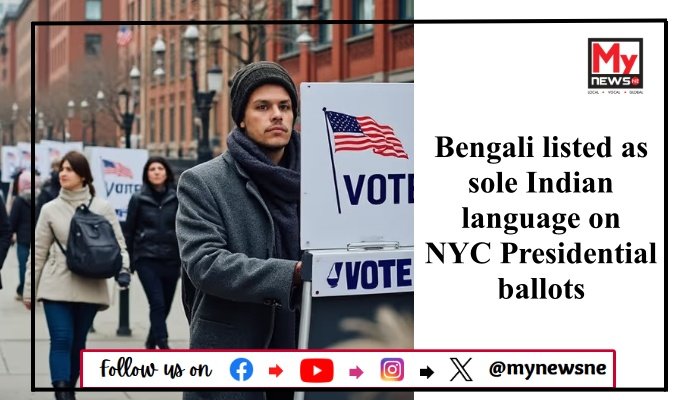Bengali Becomes Key Language on NYC Presidential Election Ballots, Enhancing Access for South Asian Voters
New York City — In a notable move to improve voter accessibility, Bengali will be one of only five languages offered on New York City’s presidential election ballots this Tuesday, joining English, Chinese, Spanish, and Korean.
This decision, despite the city’s status as a melting pot of over 200 languages, highlights a unique step toward inclusive voting access for South Asian communities.
This provision is part of a mandate established in 2013 under the Voting Rights Act of 1965, which safeguards language access for minority communities.
The Board of Elections selected Bengali to represent South Asian languages through a legal settlement that emerged from a lawsuit on language access rights. Michael J. Ryan, Executive Director of NYC’s Board of Elections, explained that Bengali was chosen to represent the broader linguistic needs of South Asian communities, including Indian and Bangladeshi populations.
For voters like Subhshesh, a Queens resident whose father benefits from Bengali-language ballots, this inclusion makes a crucial difference. “Voting in our native language helps many in our community feel more connected and confident,” shared Subhshesh, a sales agent near Times Square. “It’s empowering to know that language won’t be a barrier to fully participating in the democratic process.”
The commitment extends beyond just ballots. All poll sites are also required to provide voting instructions and informational materials in Bengali, reflecting a citywide push to ensure that every eligible voter can exercise their rights comfortably.
Dr. Avinash Gupta, President of the Federation of Indian Association, stressed the policy’s importance, emphasizing that it encourages greater political participation within the Indian American community. “It’s a critical step toward ensuring that our community’s voice is heard and represented,” he said.
While Bengali is spoken by people from both India and Bangladesh, its inclusion on the ballot represents an important advancement in accessible voting within one of the world’s most linguistically diverse cities.
Read More: Nagaland: Mon District to Distribute Assistive Devices to Persons with Disabilities on November 8

